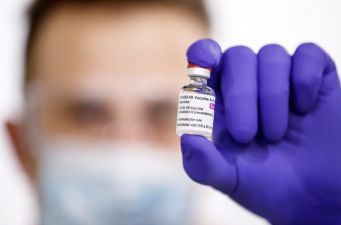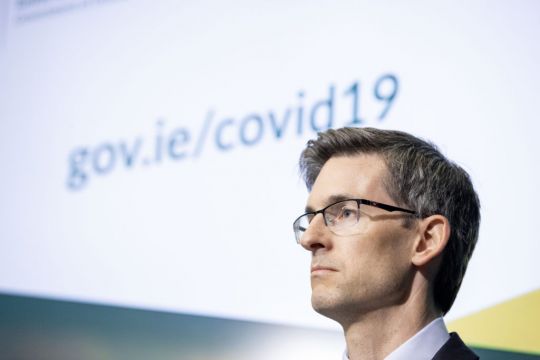It may be some time before life returns to normal according to the National Public Health Emergency Team (Nphet), who warned Ireland's epidemiological situation regarding Covid-19 remains "very fragile".
In a letter from the deputy chief medical officer, Dr Ronan Glynn to the Minister for Health, Stephen Donnelly, dated February 18th, Nphet recommended that Level 5 restrictions be extended in light of the current rates of transmission and the "continuing pressures on our health service".
Dr Glynn said the level of hope offered by vaccines was understandable, adding they will "play a critical role in protecting the population against Covid-19", however, he warned it would take some time before a sufficient level of the population were vaccinated.
The deputy CMO added that even when sufficient numbers had received the jab, "it is not possible to know at this stage what level of protection vaccination will give".
"While we have just cause to be hopeful that things will improve over the course of the year, it is simply too early to predict what the future trajectory of the disease will be, given all the uncertainties and unknowns in relation to variants and vaccine effectiveness and uptake levels," Dr Glynn wrote.
"It is vital that as a population we don't drop our guard, and we ensure that our overall approach continues to be one that is cautious and sustainable over the immediate, medium and longer term," he added.
Ireland continues to experience a very concerning and precarious epidemiological situation.
In his letter, Dr Glynn estimated the reproductive, or R number, to be in the region of 0.65-0.85, showing the rate of decline of the virus to be between -2 to -4 per cent.
However, he noted the test positivity rate remains high despite decreasing to 5.5 per cent on February 17th from 5.8 per cent on February 10th.
Discounting serial and facility testing, the test positivity rate had plateaued at 10.4 per cent in the week to February 17th, falling by just 0.1 per cent from the previous week.
"Ireland continues to experience a very concerning and precarious epidemiological situation. Incidence is falling but the rate of decline has slowed and daily case counts remain very high," Dr Glynn warned.
He said the number of people in hospital with Covid-19 has reduced over the past number of weeks, however the figures remain high, noting the wider health and social care system "continues to experience very significant impact from the current wave of infection".

Nphet determined it was essential that the prevalence of the virus and the number of Covid patients in hospital be reduced to much lower levels and that vulnerable people receive vaccination before any significant easing of measures is considered.
When measures are eased, Nphet recommends that it be done in a "slow and gradual" way, with "sufficient time between phases to assess impact".
The group add the easing of measures should also be subject to rapid response if the epidemiological situation deteriorates.
"It is imperative that the focus remains on regaining and maintaining control over the disease and preventing a further wave of infection later in the year, until vaccination can offer a widespread population level of protection," Dr Glynn wrote.







